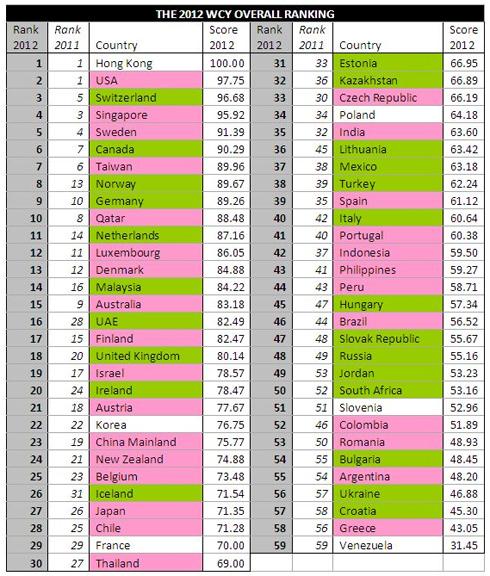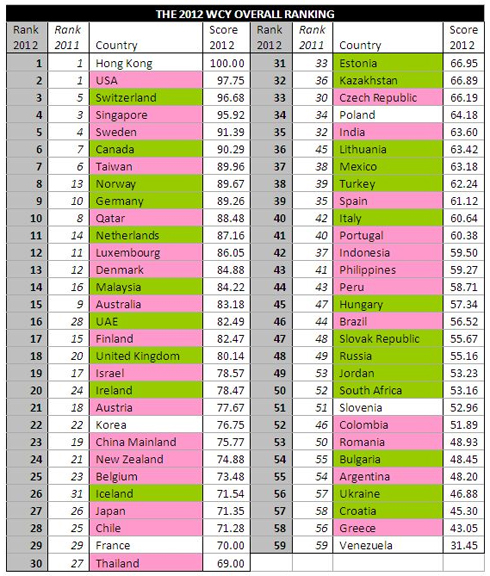The 2012 World Competitiveness Yearbook, published recently by Swiss business school IMD, indicates the growing attractiveness of Ireland for foreign direct investment.
The IMD rankings measure how well countries manage their economic and human resources to increase their prosperity, and are used by global companies, location consultants and professional firms. The rankings analyse 59 countries worldwide and list their attractiveness for investment according to 329 different criteria.
The overall situation that the study presents is that the USA continues to lead the world economy in terms of investment attractiveness. Furthermore, the ranking shows that globalisation and economic reform are viewed more and more sceptically.
The most attractive countries according to the study are Hong Kong(1), the USA(2) and Switzerland(3).
Despite all the setbacks concerning the US economy in recent years, the USA “remains at the centre of world competitiveness because of its unique economic power, the dynamism of its enterprises, and its capacity for innovation,” according to an IMD press release explaining the ranking.



